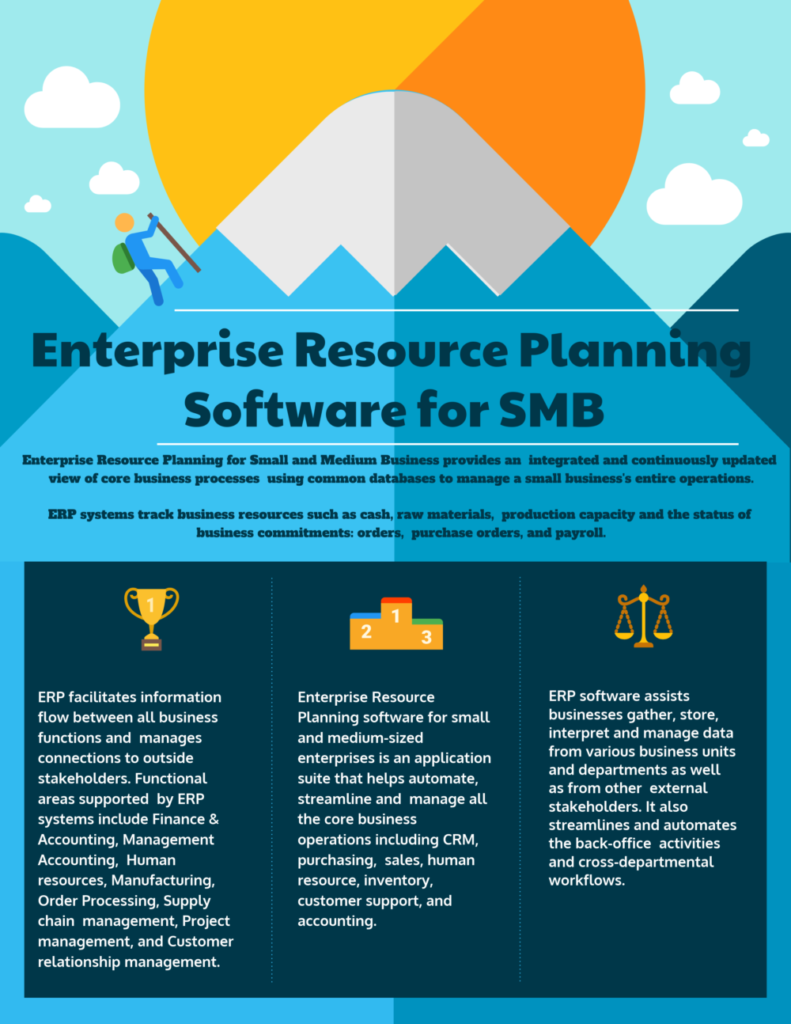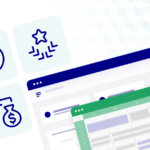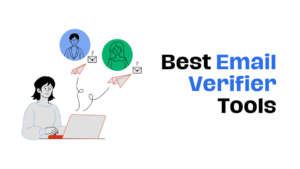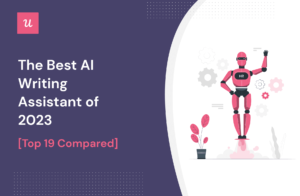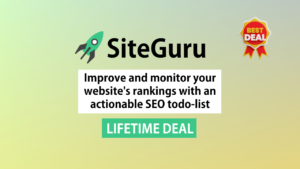Choosing the right budgeting software is crucial for both enterprise and small businesses. Each has distinct needs and financial goals.
In the world of budgeting software, enterprises and small businesses face unique challenges. Enterprises often need robust, scalable solutions to manage complex financial data. Small businesses, on the other hand, seek affordable, user-friendly options to keep their budgets on track.
Comparing these two types of software helps businesses make informed decisions. Understanding the strengths and weaknesses of each can save time and money. This guide explores the differences, making it easier to find the best fit for your business. Whether you’re running a large corporation or a small startup, the right budgeting tool can make a big difference in your financial success.

Credit: www.predictiveanalyticstoday.com
Table of Contents
ToggleIntroduction To Budgeting Software
Budgeting software has become a vital tool for businesses. It helps manage finances, track expenses, and plan for the future. Both enterprise-level companies and small businesses benefit from using budgeting software. Yet, their needs and requirements differ significantly. This post will explore these differences and help you choose the right solution for your business.
Purpose And Importance
Budgeting software serves as a digital solution for financial planning. It automates the tracking of income and expenses, helping businesses stay organized. By using budgeting software, companies can gain insights into their financial health. This allows them to make informed decisions and avoid overspending.
The importance of budgeting software cannot be overstated. It reduces human error and saves time spent on manual calculations. For enterprises, this means better resource allocation. For small businesses, it ensures they remain solvent and competitive.
Types Of Users
The users of budgeting software vary widely. Large enterprises often have dedicated finance teams. These teams require advanced features for detailed financial analysis. Enterprise software typically includes tools for forecasting, scenario planning, and financial modeling.
Small business owners, on the other hand, may not have a finance team. They need user-friendly software with basic features. This includes expense tracking, invoicing, and simple reporting. Ease of use is crucial for these users, as they might not be financial experts.
Enterprise Budgeting Software
Choosing the right budgeting software is crucial for any enterprise. Enterprise budgeting software offers advanced features and capabilities. It meets complex organizational needs. Let’s explore the various aspects of enterprise budgeting software.
Features And Capabilities
Enterprise budgeting software comes with a wide range of features and capabilities. These include:
- Detailed financial forecasting
- Advanced reporting tools
- Automated data consolidation
- Customizable dashboards
- Real-time data analysis
These features enable enterprises to manage their budgets effectively. They provide insights into financial performance. This software can handle large volumes of data. It ensures accuracy in budgeting processes.
Scalability And Integration
Enterprise budgeting software is designed for scalability and integration. It can grow with your business needs. Key points include:
- Seamless integration with ERP systems
- Compatibility with various financial tools
- Support for multiple users and departments
- Flexible deployment options (cloud-based or on-premises)
Scalability ensures that the software adapts as your enterprise expands. Integration capabilities allow for a unified financial ecosystem. This leads to smoother operations and better financial management.
Small Business Budgeting Software
Small business budgeting software is designed to help small enterprises manage their finances efficiently. These tools cater to the unique needs of smaller businesses, providing essential features without overwhelming complexity. Choosing the right software can streamline your budgeting process, saving time and improving accuracy.
Features And Capabilities
Small business budgeting software typically offers key features that support basic financial management. Here are some of the most common capabilities:
- Expense Tracking: Monitor and categorize your business expenses easily.
- Income Management: Keep track of your revenue streams in one place.
- Financial Reporting: Generate essential reports like profit and loss statements.
- Cash Flow Forecasting: Predict future cash flow based on historical data.
- Budget Planning: Set and monitor your budget goals.
These features help small business owners make informed decisions and maintain financial health.
Ease Of Use And Implementation
Small business budgeting software is designed to be user-friendly. Most tools offer intuitive interfaces that are easy to navigate. This simplicity is crucial for small business owners who may not have a background in finance.
Implementation of these tools is often straightforward. Many software solutions offer step-by-step setup guides. Some even provide video tutorials for added support.
Here is a comparison table to illustrate ease of use:
| Software | Setup Time | User Interface | Customer Support |
|---|---|---|---|
| Software A | 30 minutes | Intuitive | 24/7 Support |
| Software B | 45 minutes | User-friendly | Email Support |
| Software C | 1 hour | Simple | Phone Support |
Choosing software with easy implementation ensures you can start managing your finances quickly.

Credit: www.jaz.ai
Cost Considerations
Choosing the right budgeting software for your business is crucial. Cost considerations play a key role in this decision. Let’s dive into the cost aspects of enterprise and small business budgeting software. We will explore the initial investment and ongoing costs for both options.
Initial Investment
Enterprise budgeting software usually demands a higher initial investment. These solutions often come with advanced features and integrations. They may also require customizations to meet specific needs. This raises the upfront cost.
Small business budgeting software, on the other hand, tends to be more affordable. They offer essential features without the hefty price tag. This makes them a good choice for businesses with limited budgets.
Ongoing Costs
Ongoing costs for enterprise software can add up. These include subscription fees, maintenance, and support. There might also be costs for updates and upgrades. Staff training can also contribute to ongoing expenses.
Small business budgeting software often has lower ongoing costs. Subscription fees are generally less expensive. Maintenance and support are usually minimal. This makes them easier to manage over time.
User Experience
Choosing the right budgeting software depends heavily on the user experience. Both enterprise and small business software offer unique experiences. Let’s explore their differences in detail.
Interface And Usability
Enterprise software typically features a complex interface. It is designed to handle many tasks and users. This can make it seem overwhelming at first glance.
Small business software usually has a simpler interface. It focuses on ease of use. This makes it more accessible for users with less technical knowledge.
| Feature | Enterprise Software | Small Business Software |
|---|---|---|
| Interface | Complex and feature-rich | Simple and user-friendly |
| Usability | Requires training | Easy to learn |
Customer Support
Enterprise software often includes dedicated customer support. This support can be in the form of 24/7 help desks, training sessions, and dedicated account managers.
Small business software may offer basic customer support. This usually includes email support, FAQs, and community forums. The level of support can vary depending on the software provider.
- Enterprise Software: 24/7 support, training, dedicated account managers.
- Small Business Software: Email support, FAQs, community forums.
Understanding these differences can help you choose the right tool for your needs. Focus on the interface, usability, and level of support. This ensures a better user experience for your team.

Credit: www.facebook.com
Customization And Flexibility
Customization and Flexibility are vital aspects of budgeting software. Both enterprise and small business solutions offer these features, but they do so in different ways. This section will explore how each type of software tailors to business needs and adapts to changes.
Tailoring To Business Needs
Enterprise budgeting software often includes extensive customization options. Large companies have complex requirements. This software allows for tailored dashboards, specific financial models, and detailed reports. These features help meet diverse business needs.
Small business budgeting software focuses on simplicity. It offers basic customization like adjustable templates and easy-to-use interfaces. This software helps small businesses manage their finances without complexity.
Adaptability To Changes
Enterprise solutions excel in adaptability. They offer scalable options to accommodate growth. This software can integrate with other enterprise tools. It also handles large data sets and changing regulations efficiently.
Small business software is also adaptable, but in a simpler way. It is designed to handle basic changes. These systems allow for quick updates and easy modifications. This flexibility is perfect for small businesses that need to pivot quickly.
| Feature | Enterprise Software | Small Business Software |
|---|---|---|
| Customization | Highly customizable dashboards and reports | Basic templates and easy-to-use interfaces |
| Adaptability | Scalable and integrates with other tools | Quick updates and easy modifications |
Security And Compliance
Choosing the right budgeting software for your enterprise or small business involves many factors. Among them, Security and Compliance are crucial. Both small and large businesses must protect their financial data and adhere to regulatory standards. Let’s explore how enterprise and small business budgeting software address these needs.
Data Protection
Data protection is essential in budgeting software. Enterprise-level software often offers advanced security features. These include:
- Encryption of sensitive data
- Multi-factor authentication
- Regular security audits
Such features ensure data is secure from breaches and unauthorized access.
Small business software may provide basic security features. These often include:
- Password protection
- Basic encryption
- Regular updates
While not as robust, these features still provide a good level of security for smaller operations.
Regulatory Requirements
Meeting regulatory requirements is essential for any business. Enterprise software is designed to comply with complex regulations such as:
- GDPR (General Data Protection Regulation)
- SOX (Sarbanes-Oxley Act)
- HIPAA (Health Insurance Portability and Accountability Act)
These solutions often include compliance management features. This ensures that all financial activities adhere to legal standards.
Small business software usually focuses on simpler compliance needs. Common features include:
- Tax compliance
- Basic financial reporting
- Industry-specific regulations
These features help small businesses stay compliant without overwhelming them with complexity.
Choosing The Right Software
Choosing the right budgeting software can be challenging. The right software must match your business size and needs. Enterprise and small businesses have different requirements. Let’s explore how to make the right choice.
Assessing Business Needs
First, understand your business needs. Small businesses often need simple, user-friendly tools. They focus on basic budgeting and expense tracking. Enterprises require robust features. They need advanced forecasting, reporting, and integration with other systems. Consider the scale and complexity of your operations.
Evaluating Options
Next, evaluate the available options. Look for software that matches your needs. For small businesses, cost-effective solutions are crucial. Free or low-cost tools might be sufficient. Enterprises should prioritize scalability and customization. Check for features like multi-user access and data security. Read reviews and get recommendations from other businesses in your industry.
Case Studies And Examples
Case studies and examples provide real-world insights into how different businesses use budgeting software. They highlight the practical benefits and challenges faced by enterprises and small businesses. By examining these examples, you can see which software might suit your needs best.
Enterprise Success Stories
One major enterprise, a multinational retail chain, adopted advanced budgeting software. This software allowed them to consolidate their financial data across various regions. The result? Streamlined operations and better financial planning. They reported a 20% decrease in budgeting errors.
Another example is a global tech company. They faced challenges with forecasting. The enterprise budgeting software provided them with predictive analytics. This improved their forecasting accuracy by 30%. It also saved them countless hours in manual data entry.
Small Business Success Stories
A local bakery with three locations needed help managing their finances. They chose a small business budgeting tool. It simplified their expense tracking and helped them set realistic financial goals. The bakery saw a 15% increase in profit margins within six months.
A digital marketing startup struggled with cash flow management. They implemented a budgeting software tailored for small businesses. This software offered cash flow monitoring and real-time financial insights. As a result, the startup improved cash flow stability and scaled their operations.
Frequently Asked Questions
What Are The Key Differences Between Enterprise And Small Business Budgeting Software?
Enterprise software offers advanced features and scalability. Small business software is simpler and more affordable. Choose based on your business size and needs.
Is Enterprise Budgeting Software Worth The Investment?
Yes, for large businesses. It provides comprehensive features and scalability. Small businesses may not need such advanced tools.
Can Small Businesses Use Enterprise Budgeting Software?
Yes, but it may be overkill. Enterprise software is complex and costly. Small business software is more suitable.
Which Budgeting Software Is Best For Startups?
Small business budgeting software is ideal. It’s affordable, easy to use, and meets basic needs. Startups benefit most.
Conclusion
Choosing the right budgeting software is key for business success. Enterprise solutions offer advanced features and scalability. Small business software is easier to use and cost-effective. Consider your business size, needs, and budget carefully. Evaluate options and select the best fit.
Good budgeting leads to better financial control. Make an informed decision for growth and efficiency.

